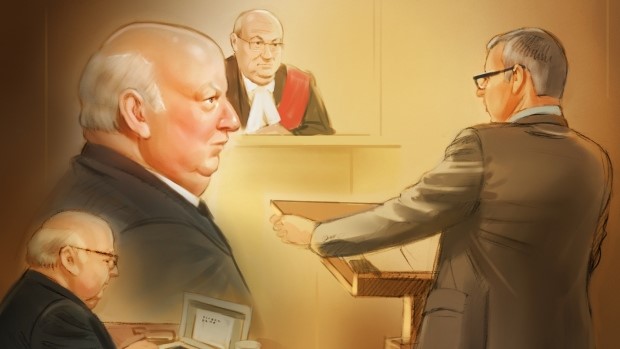THE ROLE OF LAWYERS IN THE DUFFY SCANDAL

A recent analysis of Twitter data found that Stephen Harper’s name was mentioned more times in connection with the Mike Duffy trial than the economy. This does not bode well for Mr. Harper, considering his campaign message has been centred on the Conservative Party’s economic record. It is clear that the trial of former Senator Mike Duffy has eclipsed the PC campaign message.
The Duffy affair certainly raises some interesting questions, and each new revelation seems to be more troubling than the one preceding it. No one’s hands seem to be completely clean and there seem to be serious ethical infractions on all sides—allegedly. Particularly disturbing is the role lawyers have played in this story, and the legal community should be especially concerned.
Regardless of where you fall on the political spectrum, the possibility that lawyers facilitated a fraud, a bribe, a breach of trust, or a cover-up—however you care to label it—should be a cause for alarm.
Even if what was done was not, strictly speaking, illegal, it was at the very least ethically problematic. Everyone involved in this story is intelligent, highly educated, experienced, and accustomed to moving in the most elite circles of political power; ignorant and naïve they are certainly not. Nor can they be absolved because they consulted lawyers. The involvement of lawyers, however, is very troubling, indeed.
Often, those in power and with the means to shop around for lawyers will actively seek out lawyers who will tell them what they want to hear and sanction otherwise indefensible positions. They may know that the law is not on their side, but they are convinced that if they can find a lawyer who will tell them that it is, then they can safely absolve themselves of any wrong-doing. Arguably, the only position more ethically problematic than the person who seeks out such a lawyer is the lawyer who acquiesces to such requests.
Nigel Wright, the former Chief of Staff for Prime Minister Harper, is a University of Toronto and Harvard Law-educated lawyer and is alleged to have coordinated the transaction at the heart of this scandal – the payment of $90,000 to cover Mike Duffy’s rejected Senate expenses. Although not acting in the capacity of a lawyer, Mr. Wright certainly understood what was happening.
Arthur Hamilton, lawyer to the Progressive Party of Canada, is alleged to have been aware of the repayment plan and allegedly transferred $13,000 to help cover Mr. Duffy’s legal expenses. Mr. Arthur is an Osgoode alumnus.
Benjamin Perrin, the former legal counsel to the Prime Minister’s Office, testified that he was told by Mr. Wright of his plan to pay back Mr. Duffy’s improper expenses. He was also involved in the negotiations with Mr. Duffy’s lawyers over the repayment of those expenses. Mr. Perrin is a professor of law at the University of British Columbia.
Janice Payne was the lawyer on the other side of table. She was Mr. Duffy’s lawyer at the time and was part of the negotiations.
Complaints were launched with the Law Societies of Upper Canada and British Columbia against Mr. Perrin and with the LSUC against Ms. Payne in 2013. The complaints were dismissed in 2014, but the University of Ottawa professor of law who launched the complaints questions how thorough or earnest the investigations could have been.
At least four lawyers were allegedly aware of a plan to repay Mr. Duffy’s improperly claimed expenses in order to mitigate the political cost of a scandal. As those on the cusp of entering this profession, we should pause and reflect on how these intelligent and educated people became embroiled in such a scandal.
The pressure in the air at the highest echelons of government must make it difficult to breathe; resisting the weight from the top must be extremely difficult, but whether the pressure was coming from a senator or the Prime Minister, the decision to submit to it was a conscious choice. Lawyers cannot simply claim to be neutral conduits who merely do their clients’ bidding. The LSUC Rules of Professional Conduct preclude lawyers from hiding behind their clients’ instructions. Moreover, the Criminal Code of Canada makes it an offence to be a party to an offence.
Lawyers do not trade in knowledge; lawyers trade in judgment. When you advertise legal services, you are selling your judgment and are required to exercise independent and critical thinking. When you tell a client that they may skirt or subvert the law with impunity, you do a disservice to the client and to the entire justice system.
